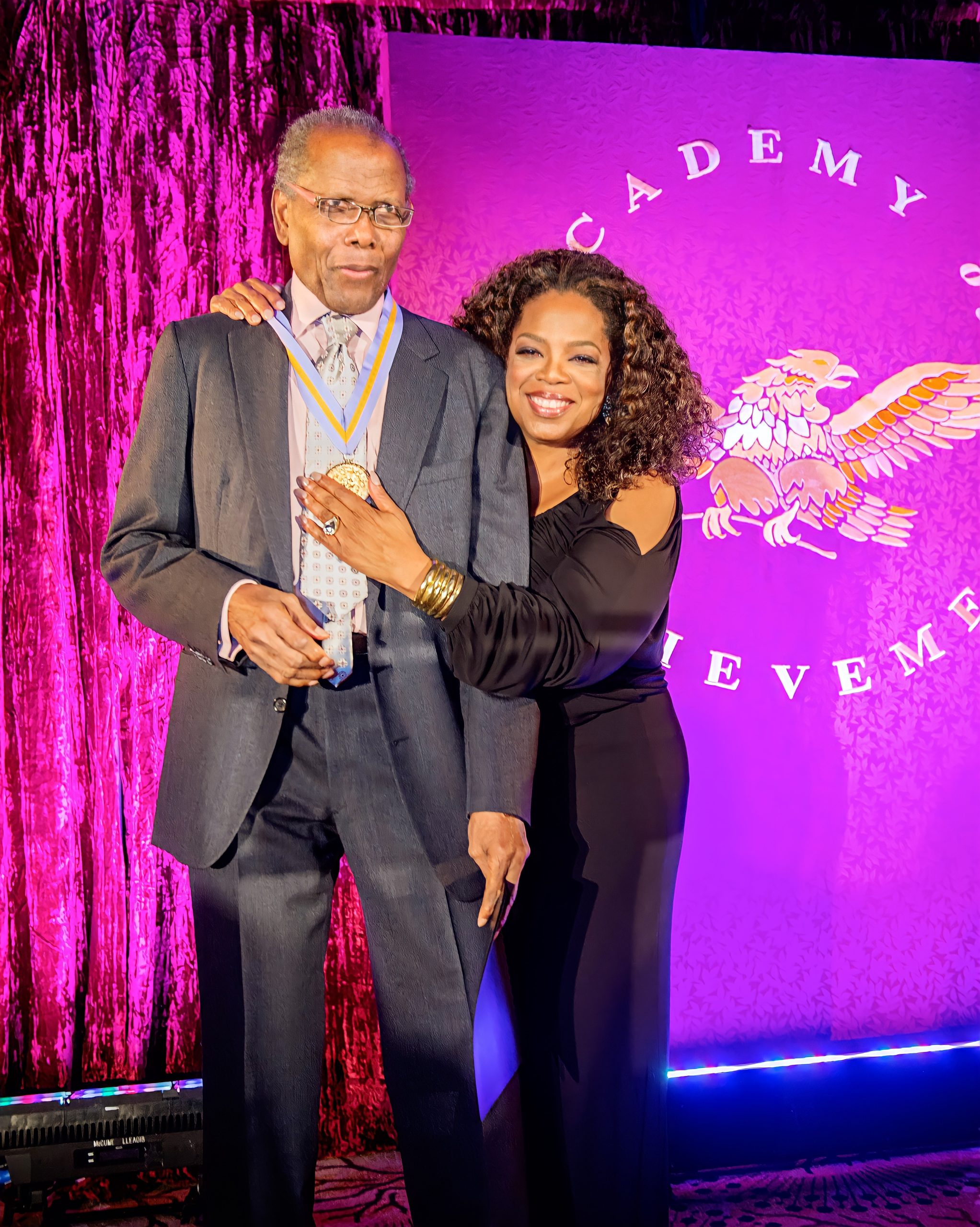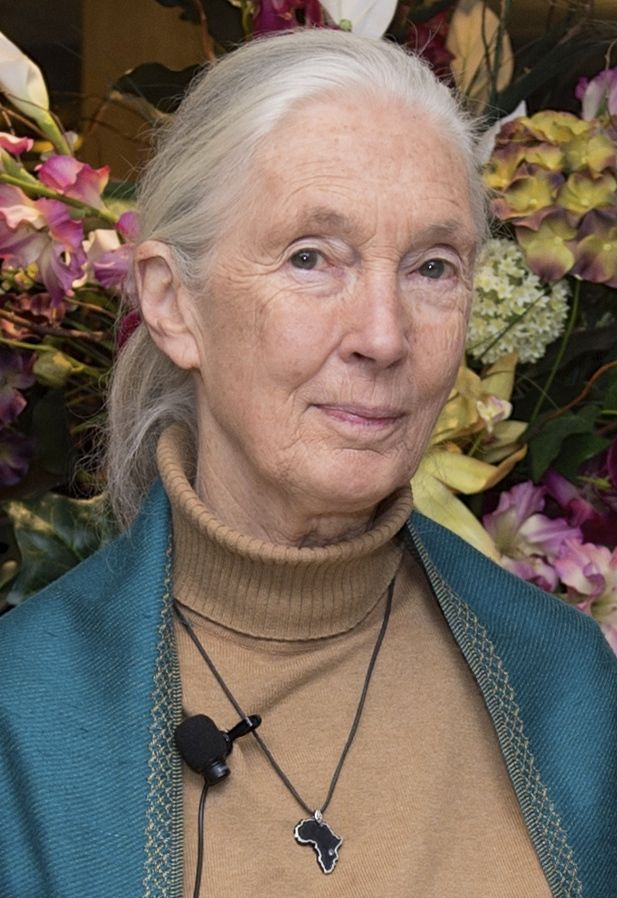
The world recently bid farewell to an extraordinary pioneer, Jane Goodall, who passed away at the age of 91 on October 1, 2025, during a speaking tour in the United States. Her passing marks the end of an era, but her profound impact on our understanding of the natural world, particularly chimpanzees, continues to resonate globally. She spent an incredible 65-year career meticulously observing and documenting animal behavior, fundamentally reshaping mid-20th-century science’s perceptions of animal intelligence and inner lives. Her work illuminated the complex social structures and emotional depth of humanity’s closest relatives, proving that the animal kingdom is far richer and more intricate than previously imagined.
Goodall’s journey was one of unwavering dedication, marked by both groundbreaking discoveries and the courage to challenge established scientific norms. From her early days in Tanzania’s Gombe Stream National Park to her later tireless advocacy for conservation, she inspired countless individuals to consider their role within the broader tapestry of life on Earth. Her legacy is not merely one of scientific achievement, but of a deeply compassionate understanding that we are part of, not separate from, the animal kingdom.
To truly appreciate the depth and breadth of her contributions, it is essential to explore the various facets of her life that illuminated her extraordinary journey. We embark on a look at some compelling insights into the life of this remarkable scientist, examining the personal passion, intellectual bravery, and enduring commitment that defined her illustrious career.
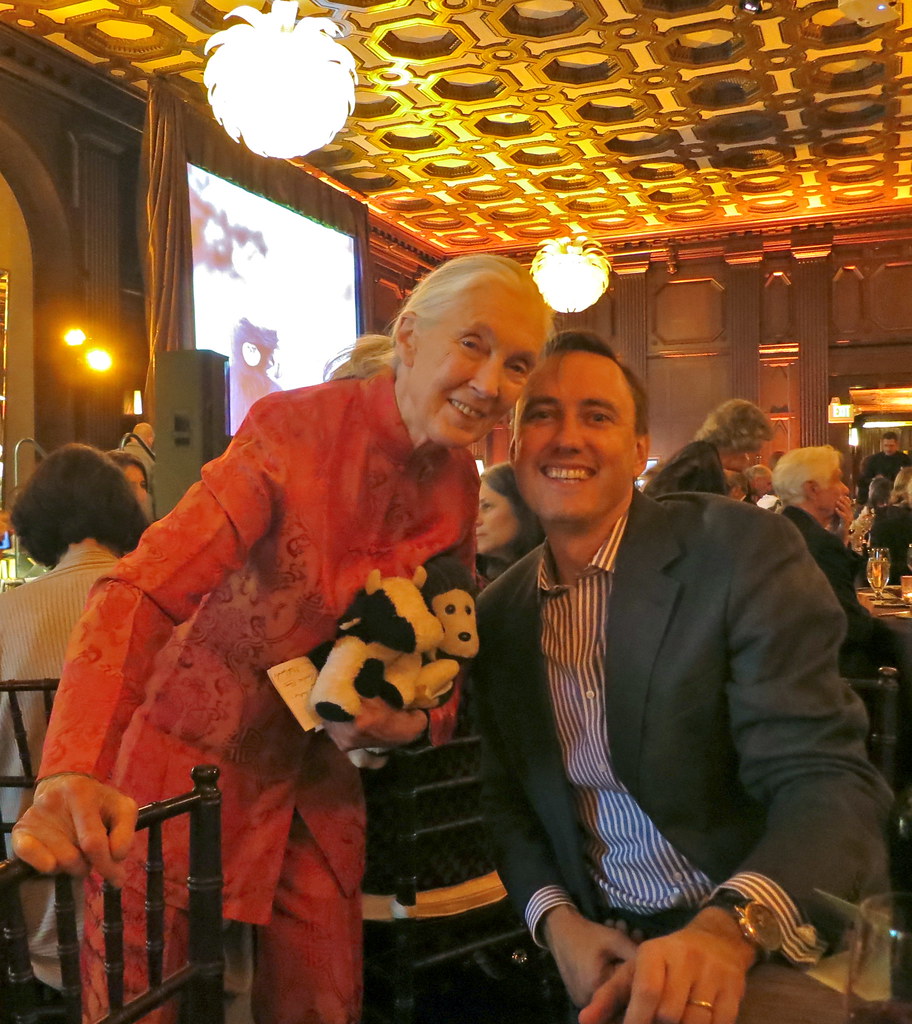
1. **A Stalwart in the Field of Primatology**Jane Goodall occupies a unique and revered position as the foremost global expert in the realm of chimpanzees. Her pioneering work, while widely celebrated today, was not without its share of early controversies, a testament to her unconventional yet ultimately successful approach to scientific exploration. These initial debates, in fact, only serve to highlight the fascinating trajectory of her career and her willingness to challenge the status quo.
One of the most notable facets of Goodall’s journey that sparked considerable discussion within the scientific community was her deliberate choice to assign names to the individual chimpanzees she studied, rather than adhering to the traditional practice of using numerical identifiers. This departure from conventional scientific methodology was seen by some as a breach of objectivity, an act of ‘anthropomorphizing’ her subjects. Yet, for Goodall, it was a crucial step towards recognizing their individuality and complex personalities, fostering a deeper, more empathetic understanding.
Further adding to the debate, critics also voiced concerns regarding her use of feeding stations to attract chimpanzees for closer observation. They contended that this practice could potentially disrupt the chimpanzees’ natural feeding patterns and, in some instances, even incite aggression among these captivating creatures. While these criticisms underscored the rigorous standards of scientific inquiry, Goodall maintained that these methods, carefully managed, were invaluable for establishing trust and gaining unprecedented access to the chimpanzees’ daily lives.
Ultimately, the sheer volume and meticulous detail of Goodall’s long-term observations at Gombe provided irrefutable evidence supporting her methods and findings. Her ability to integrate into the chimpanzee community, built on the foundation of individual recognition and patient observation, allowed her to gather data that transformed primatology and eventually swayed many of her initial detractors. It demonstrated that a blend of rigorous scientific method and profound empathy could unlock secrets previously thought unattainable.
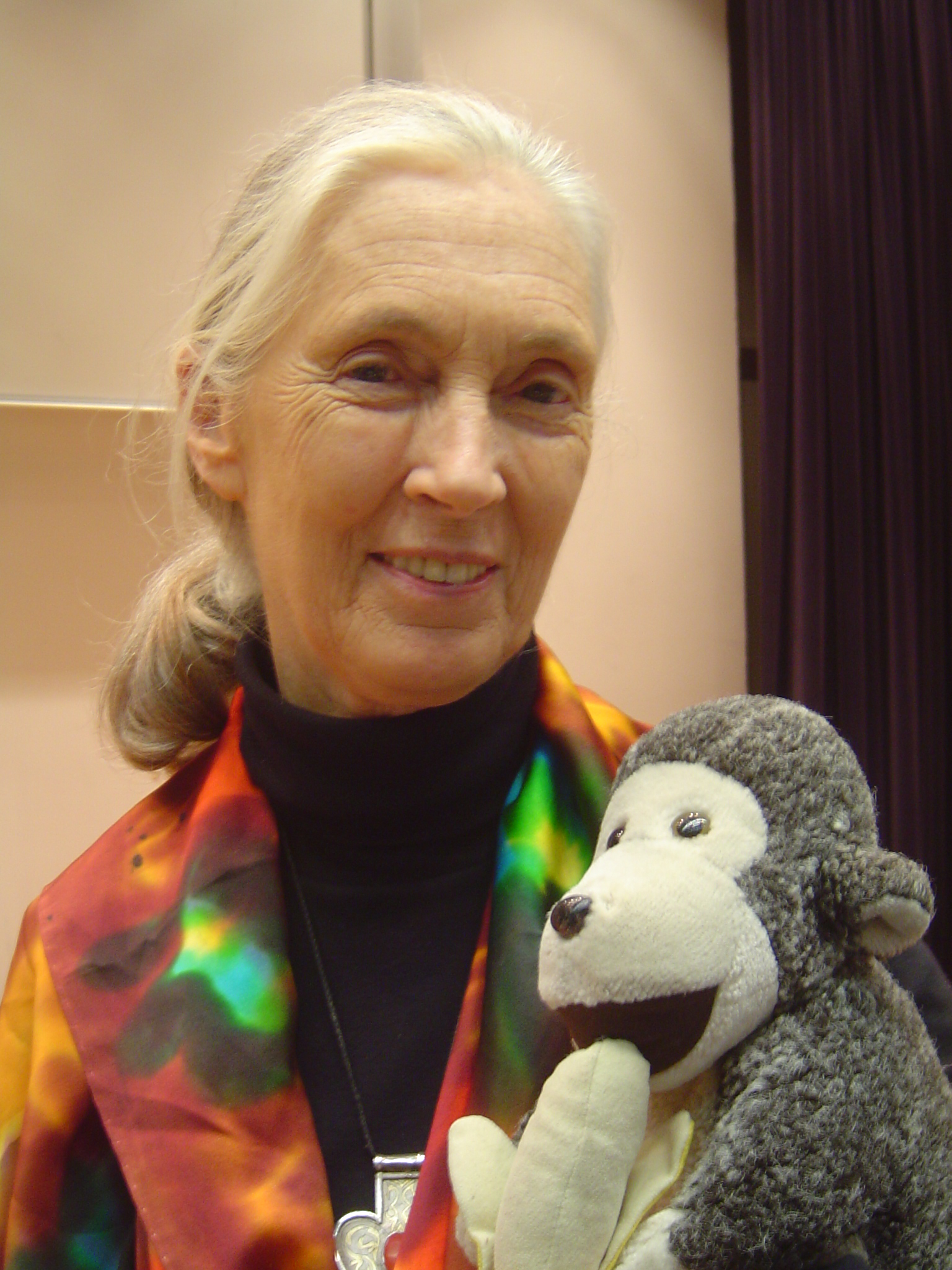
2. **A Trailblazing Journey Amidst Academic Barriers**In the historical landscape of scientific research, particularly during the mid-20th century, new voices and unconventional approaches often faced significant skepticism and resistance. Jane Goodall, a woman forging her own path in the predominantly male domain of primatology, encountered not only the inherent hurdles of being an outsider but also the pervasive gender bias prevalent in her era. Many established researchers harbored reservations about her unorthodox methods and, notably, her lack of formal academic pedigree when she began her groundbreaking fieldwork.
Early critics, scrutinizing her approach with a dubious eye, deemed her methods overly lenient, especially her practice of bestowing names upon her research subjects instead of employing numbers. This move, as discussed, stirred substantial controversy, as it challenged the prevailing notion of scientific detachment. Some went even further, questioning the authenticity of her observations, with Goodall herself recalling, “I was even accused of teaching the chimps how to fish for termites,” an accusation she found quite amusing given the inherent brilliance of such a feat.
Despite these formidable academic and societal barriers, Goodall’s unwavering dedication and the undeniable weight of her accumulating research began to turn the tide. In 1962, she embarked on a Ph.D. program at Cambridge University without an undergraduate degree, a rare privilege granted due to her exceptional field observations. She completed her B.A. in natural sciences in just two years and earned her doctorate in 1966, with her Gombe work forming the foundation of her thesis. Her meticulous notes and detailed observations were the scientific data that rigorously substantiated her claims.
Thanks to Goodall’s years of immersive fieldwork, her patient and detailed observations, and her meticulous documentation, we now possess a deeper understanding that chimpanzees, and indeed many other animal species, are capable of making and using tools, solving complex problems, and displaying a wide spectrum of emotions. Her powerful conviction is beautifully encapsulated in her statement: “You cannot share your life in a meaningful way with a dog, a cat, a rabbit, a rat, a bird, a horse, a pig, I don’t care, and not know that they have emotions similar to ours and that they have minds that can sometimes solve problems.”
Read more about: John Amos: Celebrating the Enduring Legacy of a Groundbreaking Actor and Cultural Icon
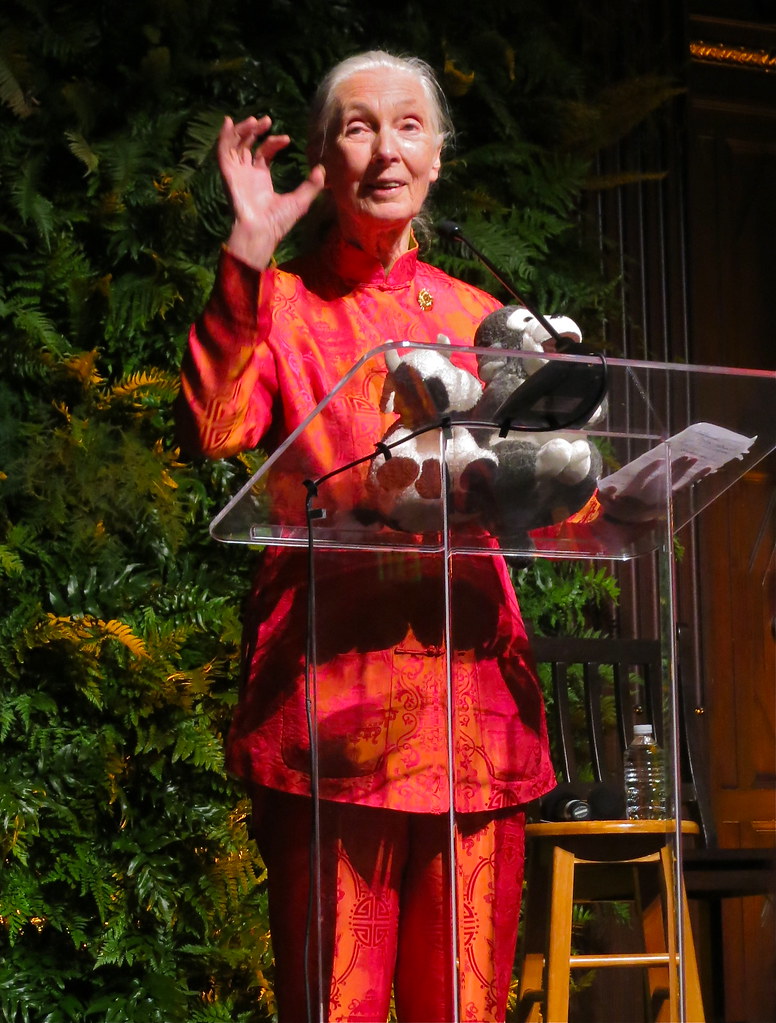
3. **Words that Brought Chimpanzees to Global Acclaim**Jane Goodall’s written works achieved a remarkable feat, catapulting the chimpanzees she studied into the international spotlight and endowing them with distinct individual identities and global recognition. Her acclaimed books, most notably “Through a Window” and “In the Shadow of Man,” served as powerful conduits, translating complex scientific observations into accessible and engaging narratives for a wide audience. These volumes did more than just recount data; they introduced the world to the vivid personalities and intricate lives of the Gombe chimpanzees.
A striking testament to the profound resonance and impact of her work emerged when one of her cherished chimpanzee subjects, the venerable Flo, passed away. The London Times, recognizing Flo’s unique place in the public consciousness, saw fit to pay tribute to her with a heartfelt obituary. This unprecedented honor underscored how Goodall’s literary endeavors had successfully transformed her research subjects from mere scientific specimens into beloved, recognized individuals, fostering a global connection to their existence and fate.
Goodall’s literary contributions were not limited to her seminal works on chimpanzees. She has authored countless books over the past five decades, spanning topics from her direct experiences with chimpanzees to urgent issues like the climate crisis. Her writing reflects a consistent commitment to both informing and inspiring, using storytelling as a powerful tool for change.
Her more recent contributions include “The Book of Hope: A Survival Guide for Trying Times,” published in 2021, which emphasizes the critical importance of maintaining hope in the face of global challenges like the climate crisis and pandemics. Additionally, she provided an introduction for the 2022 book, “Local Voices, Local Choices: The Tacare Approach to Community-Led Conservation,” a work by the Jane Goodall Institute that highlights the efforts of local communities in protecting their ecosystems. Through her prolific writing, Goodall consistently expanded the horizons of scientific understanding and elevated her beloved chimpanzees, and indeed the entire natural world, to a place of household recognition and public concern.
Read more about: A Legacy Remembered: Honoring the Lives of Notable Celebrities and Influential Figures We Lost in October 2025
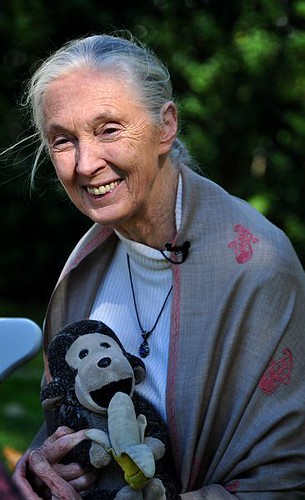
4. **Nurturing a Lifelong Love for Books and Africa**The very bedrock of Jane Goodall’s extraordinary journey into the world of primatology can be traced back to her formative years, where a deep and abiding love for animals converged with a “voracious appetite for books about animals and the enchanting continent of Africa.” This early passion laid the essential groundwork for her future groundbreaking pursuits, igniting a curiosity that would define her life’s work. It was in the pages of captivating stories that her imagination first took flight, envisioning a life immersed in the wild.
Among her most cherished literary companions during childhood were the timeless classics that shaped her early perceptions of human-animal connections and faraway lands. These included “The Story of Dr. Dolittle,” which celebrated the ability to communicate with animals, and Edgar Rice Burroughs’ thrilling “Tarzan” series, a saga set against the backdrop of the African jungle. These narratives offered her glimpses into worlds where humans and wild creatures intertwined, profoundly influencing her dreams and aspirations.
An intriguing, perhaps even telling, facet of her early literary taste reveals that Goodall herself expressed a preference for Tarzan’s adventurous exploits over those of his romantic counterpart, Jane Porter. With a spirited imagination, she envisioned herself as a more fitting partner for the tree-swinging hero, a playful detail that underscores her adventurous spirit and a desire for active engagement with the wild, rather than a passive, observational role. This perspective foreshadowed her later immersive research style, where she became an integral part of the chimpanzee world.
This early literary affinity, combined with a deep-seated love for the natural world, was not merely a childhood fancy but a powerful predictor of her destiny. It was this foundation that allowed her to approach the mysteries of the wild with an open mind and a heart full of empathy, eventually leading her to the very continent that had captivated her imagination for so long. Her journey from the pages of beloved books to the heart of the African wilderness stands as a testament to the transformative power of childhood dreams.
Read more about: Revealing the Impact: 13 Celebrity Financial Pledges That Are Truly Shocking in Their Scale and Vision
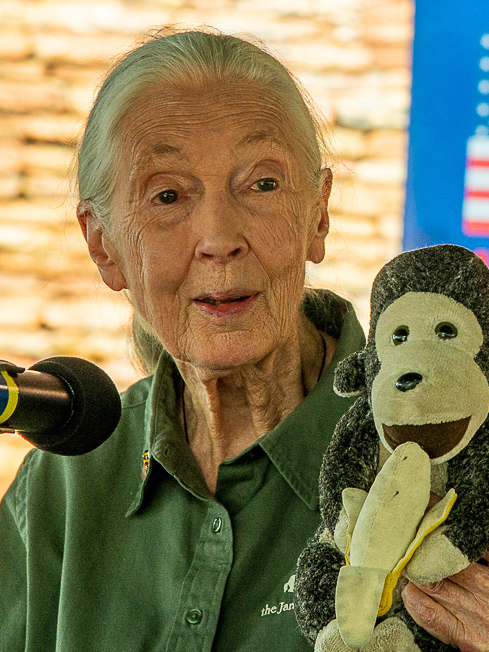
5. **A Successful Anthropologist and Primatologist**Jane Goodall, uniquely distinguished as both an anthropologist and a primatologist, embarked on a truly transformative odyssey that positioned her not merely as an external observer but as an active participant in the lives of the chimpanzees inhabiting the rich landscapes of Africa. Her unparalleled dedication to immersion allowed her to break from traditional scientific distance, fostering a level of trust and understanding that had previously been unimaginable. This approach yielded insights that were both profound and intimately observed.
Her distinctive immersive approach enabled her to glean “unparalleled insights into their intricate behaviors and intricate social structures.” By living among the chimpanzees for extended periods, rather than merely observing from afar, Goodall witnessed firsthand the nuanced communication, complex family dynamics, and emotional spectrum that characterize chimpanzee life. This deep engagement allowed her to uncover truths about their intelligence and social patterns that traditional, more detached methodologies might have missed entirely.
Remarkably, this hands-on journey naturally led her to evolve into a preeminent advocate for chimpanzees worldwide. She tirelessly dedicated herself to heightening global awareness about the perilous plight of both captive and wild chimpanzee populations. Her advocacy extended beyond scientific papers; it involved relentless travel, public speaking, and direct appeals, drawing attention to habitat destruction, illegal wildlife trade, and the ethical treatment of animals.
In her tireless efforts, Goodall championed the cause of these magnificent creatures with an unwavering passion, thereby securing her place as one of their most ardent and effective defenders. Her work not only provided critical scientific knowledge but also illuminated the urgent need for conservation and compassion, shedding light on their indispensable importance in the grand tapestry of the natural world and inspiring a global movement for their protection.
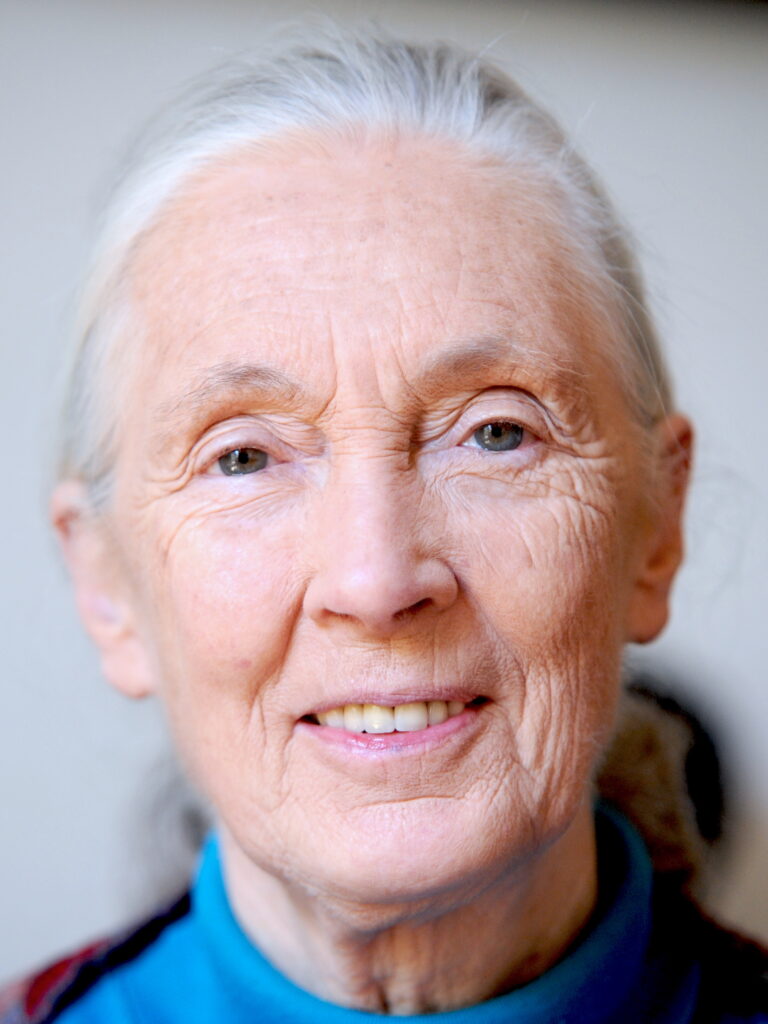
6. **Passion: Unraveling the Mysteries of the Wild Chimpanzees**In a remarkable testament to an unwavering dedication and profound passion, Jane Goodall embarked on an incredible “45-year odyssey” in pursuit of a deep and intricate understanding of wild chimpanzees. Her fieldwork, predominantly conducted within the lush environs of Gombe Stream National Park in Tanzania, became the longest-running continuous wildlife research project in the world. This sustained commitment allowed her to witness generational changes and develop an unparalleled longitudinal perspective on chimpanzee behavior.
Goodall’s unrelenting commitment to the natural world, far exceeding mere academic interest, eventually garnered widespread recognition, leading to some of the most prestigious honors bestowed upon scientists and humanitarians. Her lifelong endeavor was acknowledged with the esteemed title of Dame Commander of the Order of the British Empire, a high honor from the British government, celebrating her monumental contributions to science and conservation. This recognition underscored the global significance of her work and its impact far beyond the scientific community.
Further cementing her global role as a beacon of peace and environmental stewardship, Goodall was “bestowed with the honorable mantle of a United Nations Messenger of Peace in the year 2002.” In this capacity, she traveled extensively, using her platform to raise awareness about critical environmental issues, champion conservation efforts, and inspire action for a more sustainable and compassionate world. Her messages often emphasized the interconnectedness of all life and the responsibility humanity bears towards the planet.
Jane Goodall’s indomitable spirit, coupled with her relentless quest for knowledge and profound empathy for living creatures, has undeniably left an indelible mark on the annals of primatology and environmental conservation. Her journey, driven by an unshakeable passion, transformed our scientific understanding of chimpanzees and inspired generations to become active participants in protecting our planet and its diverse inhabitants.”
,”_words_section1″: “1945
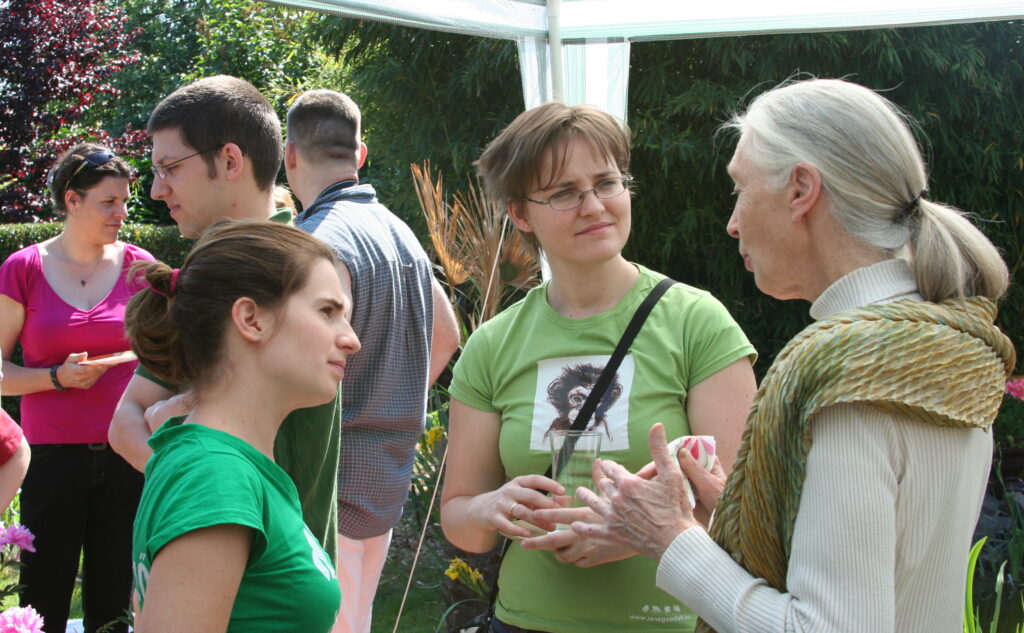
7. **Recognitions: A Tapestry of Honors**Jane Goodall’s extraordinary career is a testament not only to her scientific brilliance but also to her profound impact as a humanitarian. Her illustrious journey has been punctuated by a dazzling array of prestigious awards and accolades, each one a shining acknowledgment of her transformative contributions to the realms of science and environmentalism. These honors illuminate a global significance that transcends borders, reflecting how deeply her work has resonated with individuals and institutions alike.
Among these significant recognitions, she was honored with the prestigious French Legion of Honor and the revered Medal of Tanzania, symbols of appreciation from two distinct nations. Her groundbreaking achievements were further underscored by the receipt of the distinguished Kyoto Prize in Basic Sciences and the Tyler Prize for Environmental Achievement, placing her among the foremost thinkers and doers in her field. Each award speaks volumes about the depth and breadth of her extraordinary impact, not just in primatology, but in the broader environmental movement.
Beyond specific scientific and national honors, Goodall also received the Presidential Medal of Freedom and the Order of Merit of the United Kingdom, some of the highest civilian honors possible. Her influence extends into diplomacy, as she was notably bestowed with the honorable mantle of a United Nations Messenger of Peace in 2002, a role that amplified her message of conservation worldwide. Furthermore, her intellectual contributions have been celebrated by academia, with a remarkable 17 honorary degrees awarded from universities across the globe, cementing her legacy as one of the most influential conservationists of our time.
Yet, what truly defines Goodall’s legacy is not merely the glittering array of these honors, but the compelling tapestry of remarkable experiences and unwavering dedication they represent. These accolades are more than just tokens; they are tangible markers of a life committed to understanding and protecting the natural world, inspiring countless individuals to follow in her compassionate footsteps. Her story serves as a powerful reminder that true scientific exploration and advocacy are often rewarded with global recognition, affirming the profound impact one individual can have on the planet.
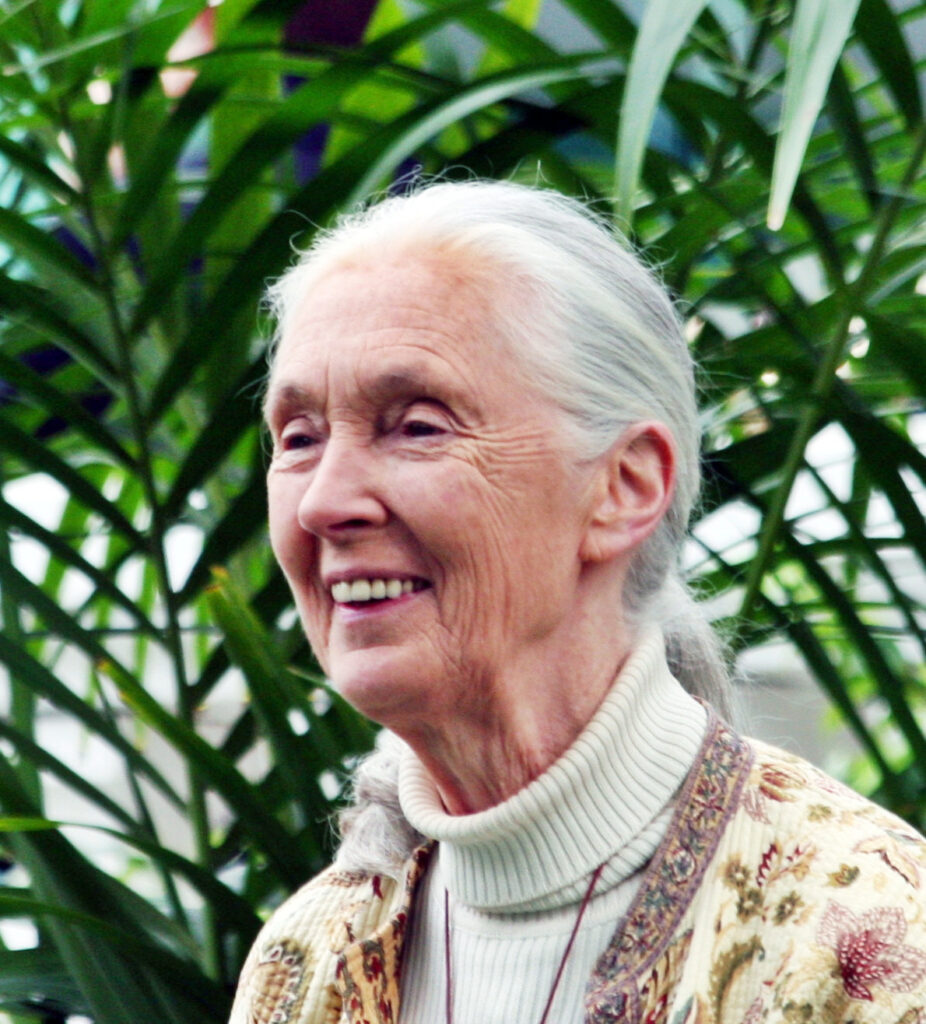
8. **Understand the Animal Kingdom: A Portrait of Compassion and Dedication**From the very outset of her journey, Jane Goodall distinguished herself not just as a brilliant scientist, but as a paragon of compassion, courage, and unwavering dedication to her calling. Her extraordinary venture into the dense jungles of Tanzania to live amongst chimpanzees wasn’t merely a research project; it was a profound commitment to understanding the animal kingdom from an intimate, empathetic perspective. This immersive approach was revolutionary, challenging the prevailing scientific norms of detached observation.
Her immersion in their natural habitat allowed her to gain insights that transcended mere academic knowledge, revealing the chimpanzees’ intricate social structures and emotional depth. She proved, through painstaking observation, that these creatures possess individual personalities, capable of forming strong bonds, expressing a wide range of emotions, and even solving complex problems. Goodall’s close observation of these primates didn’t just expand our understanding of their behavior; it fundamentally reshaped how we perceive the cognitive and emotional lives of non-human animals.
This deep connection naturally propelled her into a tireless advocacy for animal rights and welfare. Goodall has consistently spoken out against practices like animal testing, factory farming, and other forms of animal exploitation, urging humanity to recognize its shared sentience with the animal kingdom. Her powerful conviction is beautifully encapsulated in her statement: “You cannot share your life in a meaningful way with a dog, a cat, a rabbit, a rat, a bird, a horse, a pig, I don’t care, and not know that they have emotions similar to ours and that they have minds that can sometimes solve problems.”
Goodall is a fervent proponent of what she terms ‘compassionate conservation,’ an approach that emphasizes the critical importance of treating all animals with profound respect and empathy. This philosophy seeks innovative solutions that genuinely benefit both animals and humans, acknowledging the profound truth that the well-being of all species is intricately interconnected. It is a powerful reminder that a healthy, sustainable planet relies on a harmonious coexistence, where every living being is valued and protected.
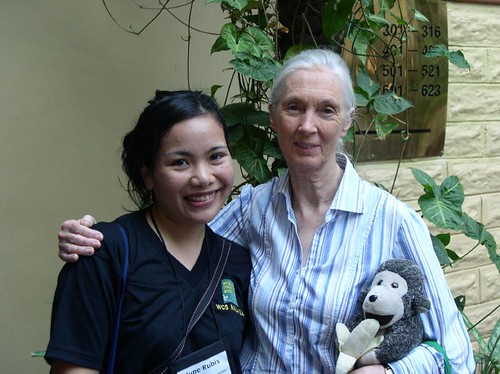
9. **Sacrifice: The Enduring Bond with Jubilee**The genesis of Jane Goodall’s lifelong bond with chimpanzees, a profound connection that would define her entire scientific journey, remarkably predates her academic pursuits. It began at the tender age of one, when her father presented her with a stuffed toy chimpanzee, affectionately named “Jubilee.” This humble yet poignant gesture was far more than a simple birthday gift; it was a serendipitous moment that set the stage for a destiny intertwined with the world of primates.
Jubilee was no ordinary toy; he remained a constant, cherished companion throughout Goodall’s formative years, a silent confidant and a tangible symbol of her budding, enduring commitment to the cause of understanding animals. This early, playful bond with a plush chimpanzee ignited a deep curiosity and an imaginative connection to the wild, fostering the very roots of her later scientific empathy. It instilled in her a sense of kinship that would later revolutionize primatology.
Even today, as a world-renowned scientist and an icon of conservation, Goodall keeps Jubilee proudly displayed on her dresser. This enduring presence serves as a powerful reminder, not only of her childhood dreams but also of the immense sacrifice and profound devotion she has poured into her life’s work. Jubilee stands as a silent testament to the unwavering passion that guided her from a curious child to a groundbreaking primatologist, embodying the very essence of her extraordinary journey.
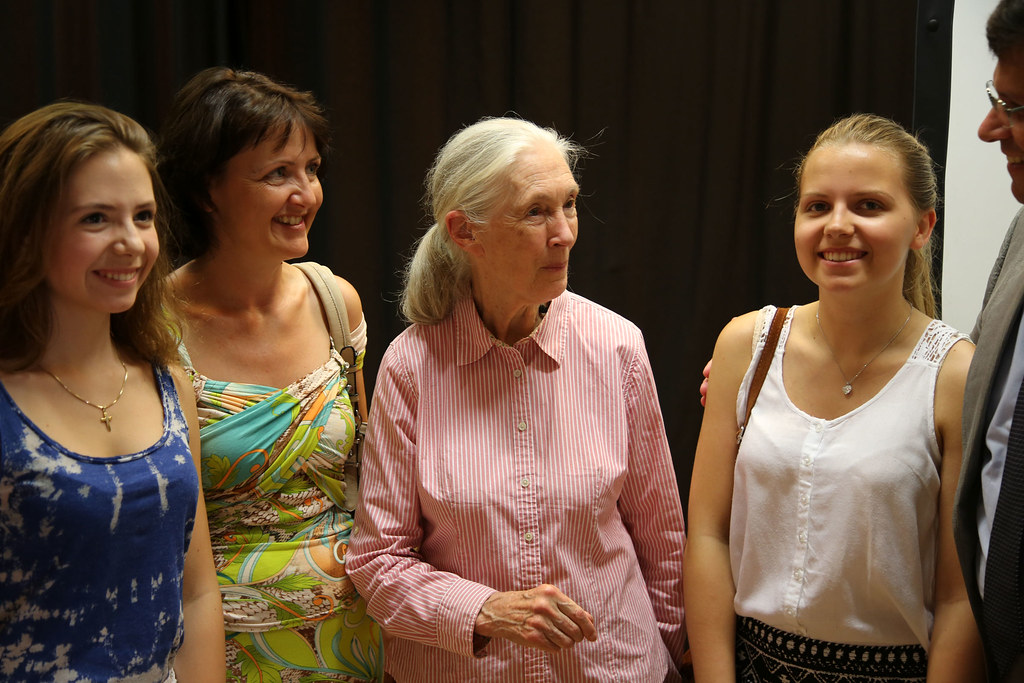
10. **Passion for Education: A Journey of Academic Achievement**Jane Goodall’s extraordinary path to becoming a world-renowned primatologist and an ardent advocate for wildlife conservation was firmly rooted in her deep-seated passion for education. Her academic journey commenced at Uplands non-public college, where she diligently pursued her studies with a clear sense of purpose. This early commitment to learning laid the essential groundwork for the monumental endeavors that would later define her career.
In 1950, she achieved her college certificate, a significant milestone that marked her initial foray into formal education. Just two years later, in 1952, she further demonstrated her intellectual drive by earning a higher certificate, continually seeking to expand her knowledge base. Remarkably, these early academic accomplishments, though seemingly modest, were crucial in shaping her determination to pursue her dreams beyond conventional pathways, particularly her long-cherished aspiration to explore the African continent.
Upon completing her initial education, Jane embarked on a somewhat unconventional path, accepting a secretarial position at Oxford College. However, her ambitions soared far beyond the confines of clerical work. In her spare time, she displayed an unwavering dedication, actively working for a London-based documentary film company. Her motivation for these endeavors was twofold: to gain invaluable professional experience and, more critically, to painstakingly secure the financial means necessary for that extraordinary and long-anticipated journey to the very heart of Africa, a continent that had captivated her imagination since childhood.
This early, self-directed drive for knowledge and experience proved to be far more significant than any traditional degree in preparing her for her pioneering work. It was this tenacity that, years later, allowed her the rare privilege of starting a Ph.D. program at Cambridge University without an undergraduate degree, completing her B.A. in natural sciences in just two years and her doctorate in 1966. Her initial academic achievements and her relentless pursuit of her African dream were foundational, demonstrating that true passion can forge its own unique educational trajectory.
Read more about: Prince Harry at a Crossroads: Unpacking the Royal Return, Marriage Tensions, and Search for Purpose
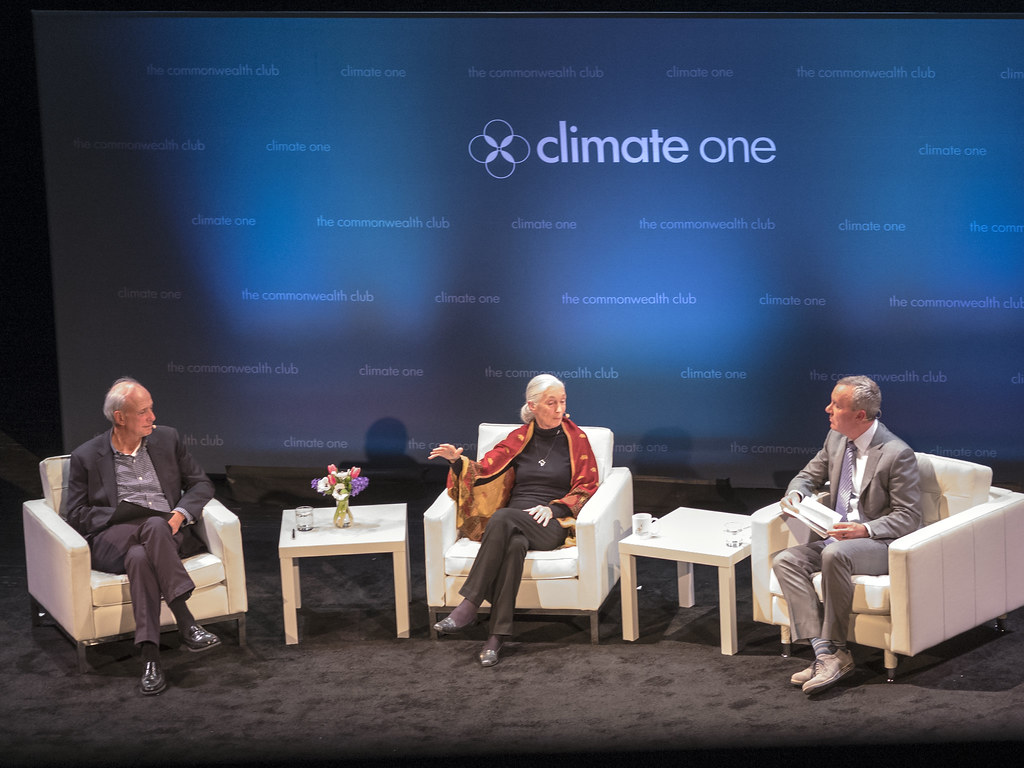
11. **A Surprise Birthday Gift: The Birth of a Lifelong Bond**Stepping back to the very dawn of her life, one of the most heartwarming and intrinsically intriguing facets of Jane Goodall’s story unfolds on her very first birthday. It was on that momentous occasion, a day marking her entrance into the world, that she received a seemingly simple yet profoundly impactful gift: a stuffed ape. This special present, affectionately named Jubilee, would spark a connection far beyond a child’s toy.
Little could anyone have known that this seemingly ordinary birthday gift would not only become a cherished companion but also serve as a powerful catalyst, subtly propelling young Jane into a lifelong adventure intertwined with the world of primates. Jubilee represented more than just an object; he was an early symbol of the profound empathy and fascination that would eventually define her entire career. This nascent bond foreshadowed the deep understanding she would later forge with real chimpanzees in the wild.
This early connection to Jubilee deeply influenced her path, nurturing an innate curiosity about animal behavior and fostering a compassionate spirit from her earliest years. The stuffed ape became a silent witness to her childhood dreams of Africa and her desire to communicate with animals, much like the characters in her beloved books. It beautifully illustrates how a simple, thoughtful gift can, in the grand tapestry of a life, lay the foundation for a truly extraordinary destiny, guiding one towards a purpose that would ultimately change the world.
The tale of Jubilee is a testament to the power of early influences and the profound impact they can have on shaping a life’s purpose. It speaks to the idea that our passions often find their roots in the most innocent moments, growing into monumental endeavors that captivate global attention. Jane Goodall’s journey, beginning with a plush chimpanzee, exemplifies how a deeply personal bond can evolve into a universal mission of conservation and understanding.
As we reflect on the incredible life and legacy of Jane Goodall, it becomes unequivocally clear that her contributions stretch far beyond the scientific papers and academic debates. She was a visionary who dared to see animals not as mere subjects, but as sentient beings with unique personalities, complex emotions, and intricate social lives. Her unwavering dedication, compassionate spirit, and tireless advocacy have not only revolutionized primatology but have also ignited a global movement for conservation and environmental stewardship. Goodall’s life is a vibrant narrative of courage, curiosity, and an unshakeable belief in the interconnectedness of all life. She taught us to listen, to observe, and most importantly, to care. Her legacy will continue to inspire generations to come, reminding us that every individual has the power to make a profound difference, and that a more compassionate, sustainable world is not just a dream, but an achievable reality we must all strive for.


